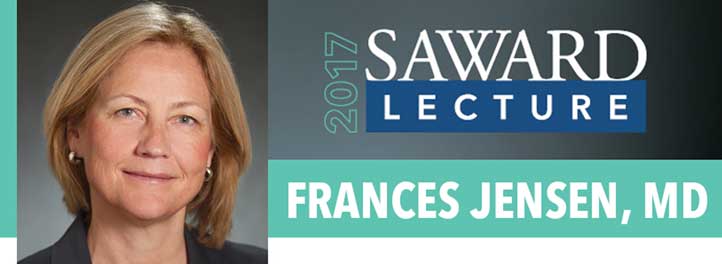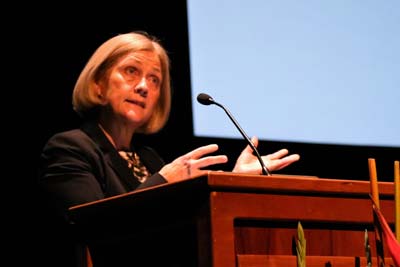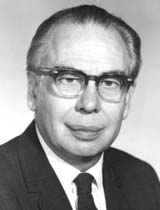Expert in Adolescent Brain Development Delivers Annual Saward Lecture
Stories - Dec 07 2017

Frances Jensen, MD, shared the latest research on the teenage brain.
The Center for Health Research welcomed Frances Jensen, MD, to Portland on October 30 for the 27th Saward Lecture, the latest in a long-running series dating back to 1989. Dr. Jensen, an internationally known expert in adolescent brain development, spoke to an audience of more than 500 at the Newmark Theatre.
Drawing from her experience as a researcher and physician—as well as her personal experience as the mother of two teenagers—Dr. Jensen delivered a talk based on her best-selling book, The Teenage Brain: A Neuroscientist’s Survival Guide to Raising Adolescents and Young Adults.
With humor, empathy, and an arsenal of data, Dr. Jensen explained how teens learn, how they respond to stress, and how their developing brains are particularly sensitive to the effects of drugs.
 Frances Jensen, MD, speaks at the 2017 Saward Lecture.
Frances Jensen, MD, speaks at the 2017 Saward Lecture.
In one segment of her talk that dealt with the physiology of addiction, Dr. Jensen explained that addiction itself is a type of learning, meaning that the enviable plasticity of mind that allows young people to quickly learn new things is what also makes some teens highly prone to developing addictive behaviors.
But Dr. Jensen also sought to debunk a few myths about teenagers; for example, the notion that teens who have trouble getting out of bed in the morning are lazy. In fact, adolescent brains are governed by a different circadian rhythm from that of adults, and our failure to recognize this does a disservice to teenagers.
Frances Jensen is a Professor of Neurology and the Chair of Neurology at the Perelman School of Medicine at the University of Pennsylvania.
About the Saward Lecture
 Ernie Saward, MD
Ernie Saward, MD
The Saward Lecture series is named after Ernie Saward, MD (1914–89), medical director of Kaiser Permanente Northwest from 1948 to 1969. Dr. Saward’s pioneering vision and administrative skill helped to launch the health maintenance organization movement. In the early 1960s, he established the Medical Care Research Unit, which later became the Center for Health Research.
The Center for Health Research presents the Saward Lecture once a year, free of charge to the community. The lecture series is made possible with support from Kaiser Permanente’s Community Benefit Initiative.
To be added to our mailing list for future Saward Lectures, please send an email to saward.lecture@kpchr.org.